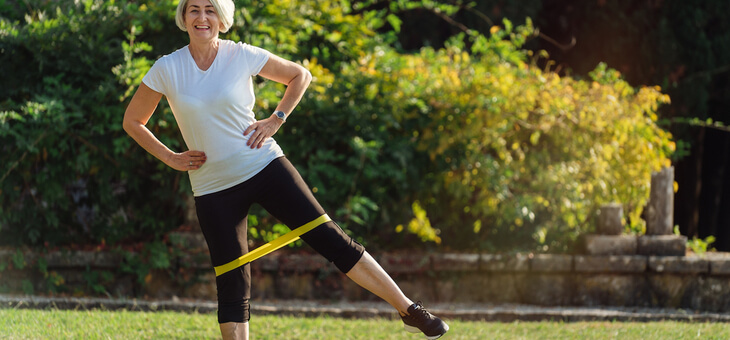Many of us have put on a few extra kilos since the start of the pandemic. Lockdowns have kept millions of people at home all day, or close to it. And finding the energy and motivation to go for a short run has been a challenge.
Sticking to a healthy meal plan has also been hard. Lockdown fatigue has set in and finding the inspiration to cook a meal can be impossible when the option of quick home delivery is right there.
If you’re worried about how you’re going to shift the weight, then there’s good news. A University of New South Wales (UNSW) study has found that whatever weight loss benefit you can get from running can be matched by doing strength training alone, without the need to alter your food intake.
“A lot of people think that if you want to lose weight, you need to go out and run,” says Dr Mandy Hagstrom, the study’s senior author.
“But our findings show that even when strength training is done on its own, it still causes a favourable loss of body fat without having to consciously diet or go running.”
Read: Why core strength is vital at every stage of life
The study included 3000 participants with no previous weight training experience. On average, the participants worked out for approximately 45-60 minutes each and an average of 2.7 times per week. These programs lasted around five months.
The results showed participants had each lost around 1.4 per cent of their total body fat (roughly 500g each). This is comparable to the results you would see after a cardio or aerobic session.
It’s great news for older Australians who sometimes find running difficult due to its high impact on the knees and ankles. It’s important to make sure the strength training you’re doing is suitable for your age, ability and fitness levels.
Strength training doesn’t necessarily mean pumping iron and doing deadlifts in the gym. In fact, the federal health department recommends that older adults include just light strength training two to three times a week, using exercises to work all the major muscle groups of your body (legs, hips, back, chest, abdomen, shoulders and arms).
Read: Why strength training is critical
The department stresses that it is important for older adults to do only low-impact strength training using either resistance bands or small dumbbells.
Using your own body as resistance is also a great, low-impact way to do strength training. Performing moves such as squats, lunges and planks can give you great results without the need for expensive equipment.
Dr Hangstrom says the reason many people think strength training isn’t as good as cardio in terms of fat loss is mostly down to the inaccurate way of measure body fat.
When we weigh ourselves on a scale, we only see our total body weight. But that number doesn’t tell you how much of that weight is fat.
Read: Eating chocolate for breakfast could lead to weight loss: study
“More often than not, we don’t gain any muscle mass when we do aerobic training,” she says.
“We improve our cardiorespiratory fitness, gain other health and functional benefits, and can lose body fat.
“But when we strength train, we gain muscle mass and lose body fat, so the number on the scales won’t look as low as it would after aerobics training, especially as muscle weighs more than fat.”
Would you be more willing to do some light strength training over running? Do you think this could help you lose weight? Let us know in the comments section below.
If you enjoy our content, don’t keep it to yourself. Share our free eNews with your friends and encourage them to sign up.

